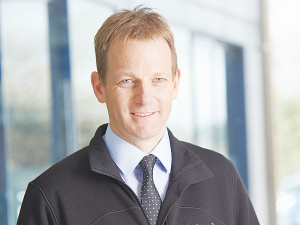DairyNZ has entered the debate between Federated Farmers and Environment Southland (ES) over water quality targets.
Last month, DairyNZ claimed its technical experts had reviewed the science underpinning Southland’s current water quality limit setting process and believed there to be alternative targets that would achieve the improvements Southlanders wanted to see.
DairyNZ’s strategy and investment leader for responsible dairy Dr David Burger says that the industry good organisation believes improvements could be made with nutrient loss targets lower than what Environment Southland has proposed.
“We share Federated Farmers concerns about Environment Southland’s water report released over the holidays, which suggests major reductions in nutrient losses across Southland farms, in some catchments of up to 90%,” Burger says.
“This is causing enormous stress for farmers who want to understand how the proposed targets came about.”
He says DairyNZ has been urging ES for six months to review their water quality modelling and explain how the targets would impact the Southland community.
“It is disappointing this hasn’t happened yet,” says Burger. “Now is the time to carry out this review while the process is still in its early stages.”
Burger adds that the proposed targets would affect all types of Southland farms and changes would impact regional economic activity.
“When targets have such major impacts on the community, they need to be robust and reflect what the community wants. Having an alternative perspective on what targets may be needed, and the implications of these targets, will help start a discussion.”
However, ES chairman Nicol Horrell says the statements made by DairyNZ are misleading.
“It is disappointing that DairyNZ is making misleading statements about a process they are involved in,” Horrell says.
He adds that ES is yet to announce any water quality targets or limits and did not release any new information over the holidays – a claim also made by Federated Farmers in January.
“We are working through a step by step process that started some years ago.
“We will continue asking questions and talking to the community over the next two years, before updating and finalising the Southland Water and Land Plan,” Horrell explains.
He says that both ES and its partner Te Ao Marama have been keeping stakeholders, including DairyNZ and the Federated Farmers executive, abreast of the science information and modelling they’ve received via science technical sessions and numerous presentations to catchment and stakeholder groups and community boards.
“To be clear, while this information provides a sense of the scale of reductions needed, these numbers are not limits that an individual farm, property or business needs to meet over any particular timeframe.”
Horrell says the Regional Forum is due to provide advice to Council and Te Ao Marama later this year on both limits and methods to achieve the community’s values and outcomes for freshwater and estuaries.
“My council is committed to setting the region on the right path to improve water quality within a generation, as we are required to do. We are also committed to ensuring we do it in a way that is going to work for Southland.”


















